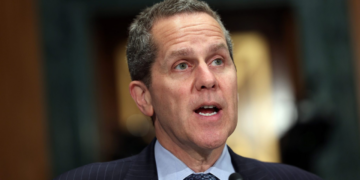A new survey from Bankrate highlights the state of worker sentiment today, and, surprise, it’s tense.
According to the survey, those who participated in the Great Resignation may be experiencing higher levels of employment anxiety as the threat of a recession continues to grow.
In fact, 56% of those who were able to find jobs with better pay stated feeling concerned about job security, with these fears twice as high compared to those who stayed at their jobs and received a pay bump.
Research shows that those who job hopped in recent years saw the largest gains in pay, but the fear of “last-one hired, first-one fired” has taken precedence.
“Sometimes the last hires are less qualified; they’re more junior, they’re younger and have less experience,” said Julia Pollak, chief economist at ZipRecruiter. “Employees do often become more valuable the longer they stay at the company, and if you’re going to cut someone, you’d rather cut someone who hasn’t accumulated all the firm-specific knowledge.”
Research supports this fear, too. Analysis from Revelio Labs shows that the average length of 17,000 laid off workers was 1.2 years.
However, new-hire layoffs aren’t always the go-to move for businesses looking to cut costs. Specific teams are actually more likely to be impacted, such as marketing and advertising teams.
Other factors are also taken into consideration when leaders are considering layoffs, including performance and necessity, but sometimes just poor luck can impact employees.















